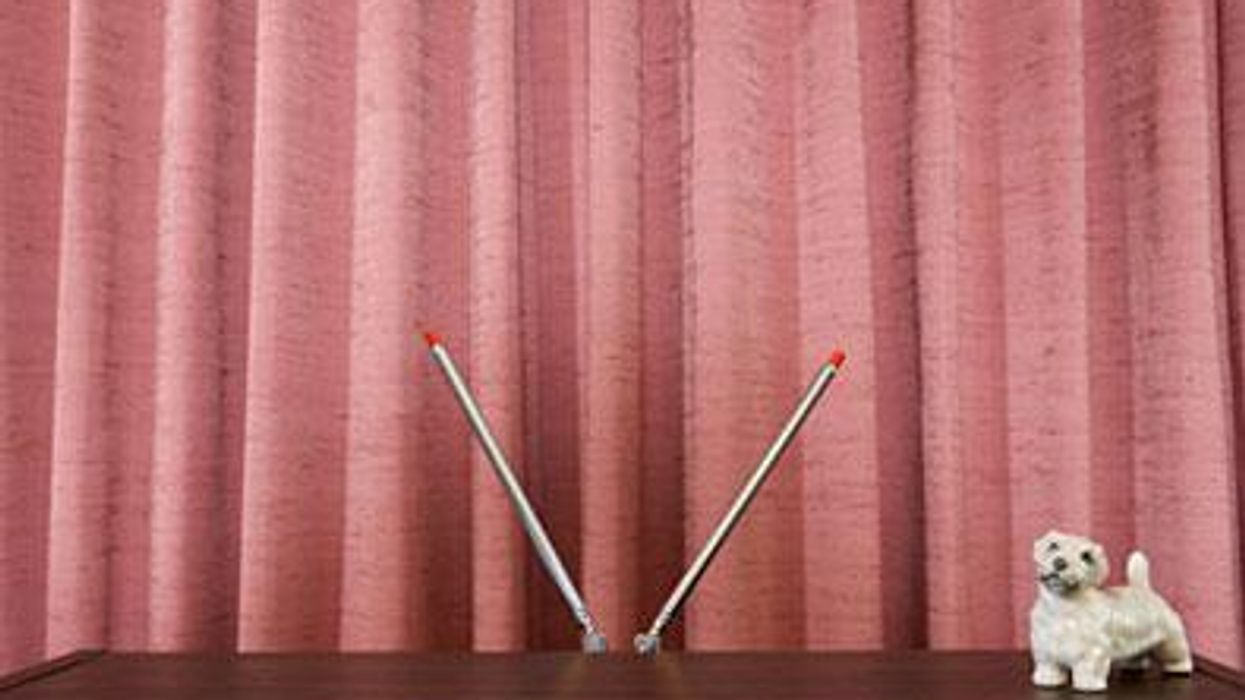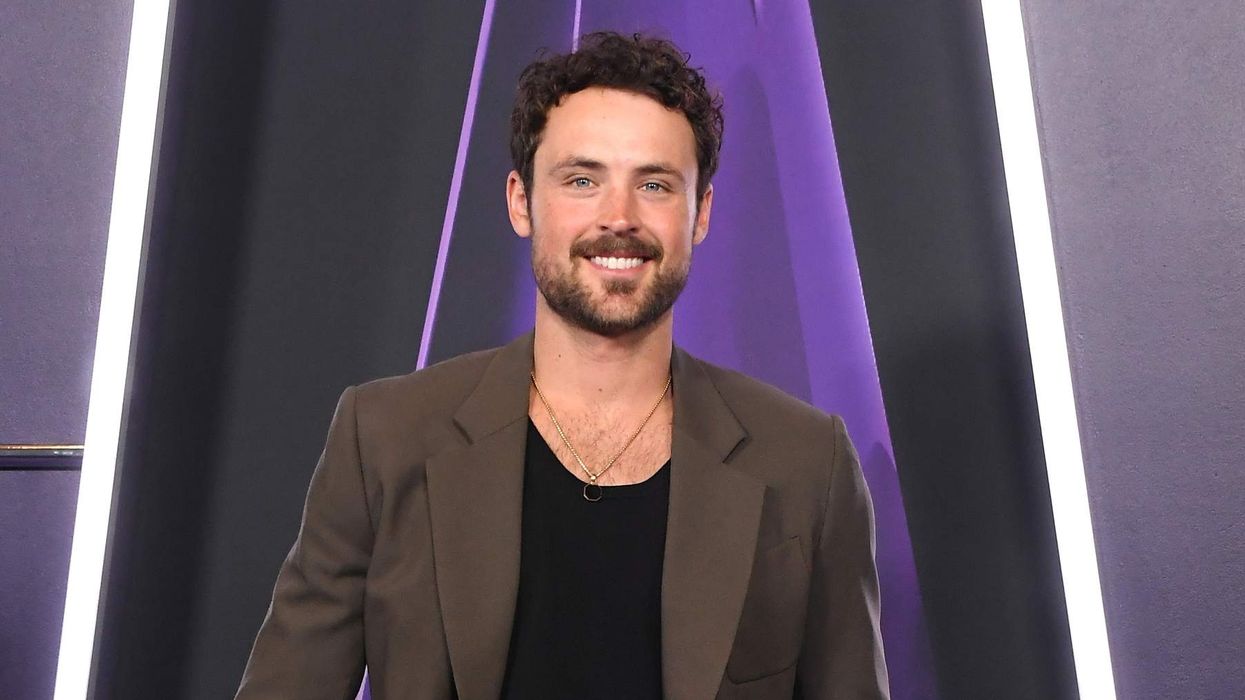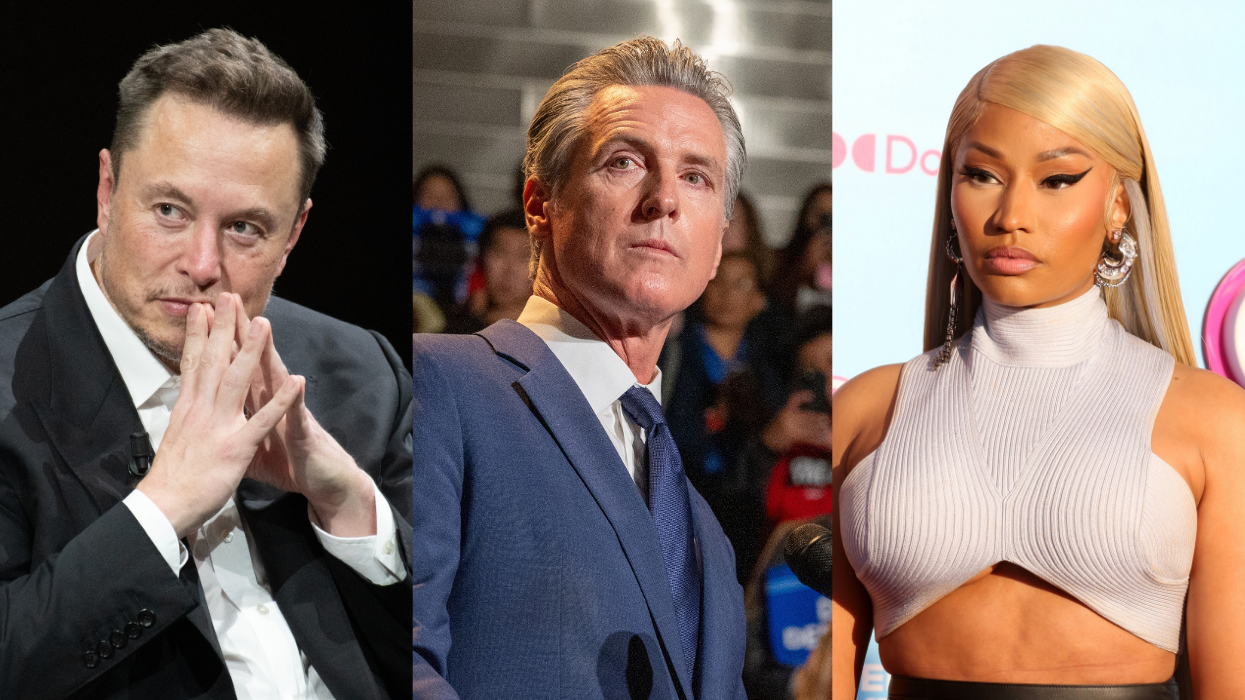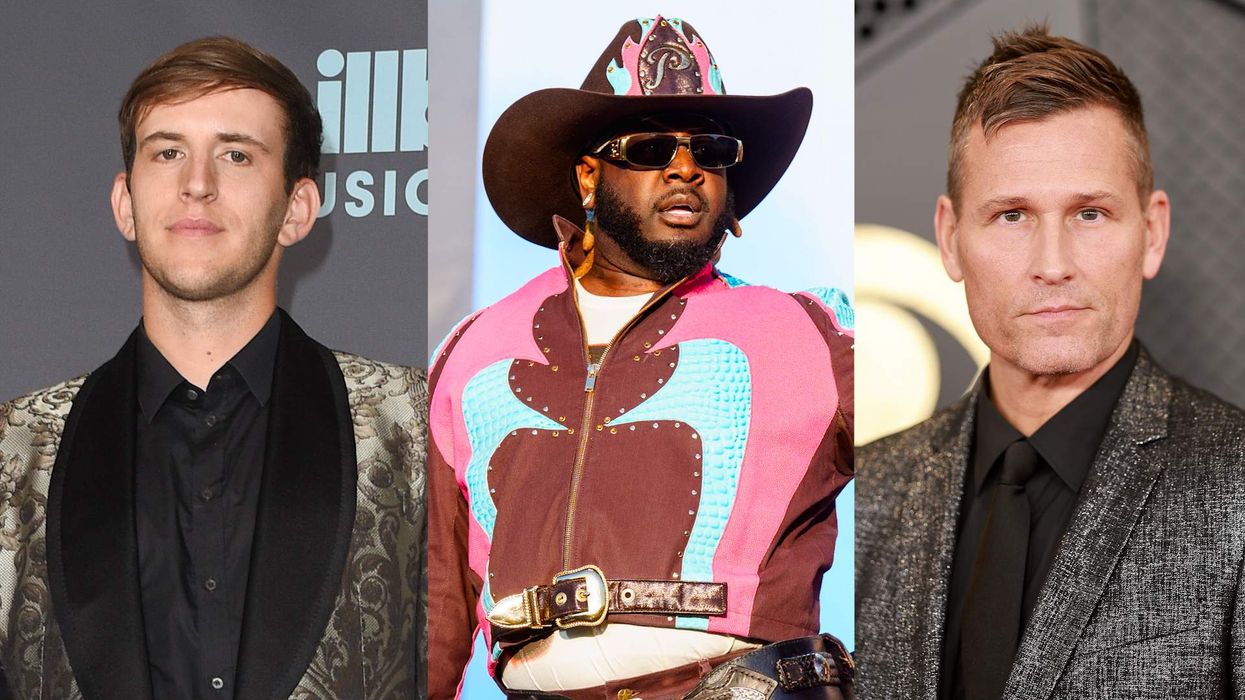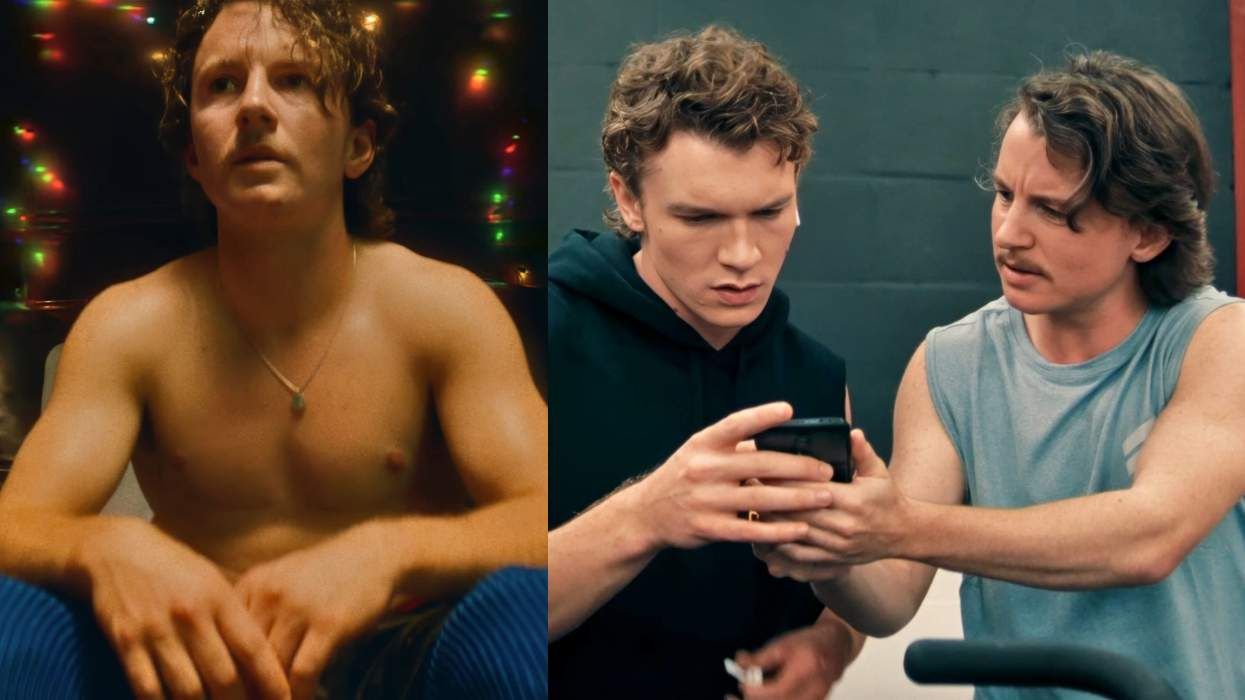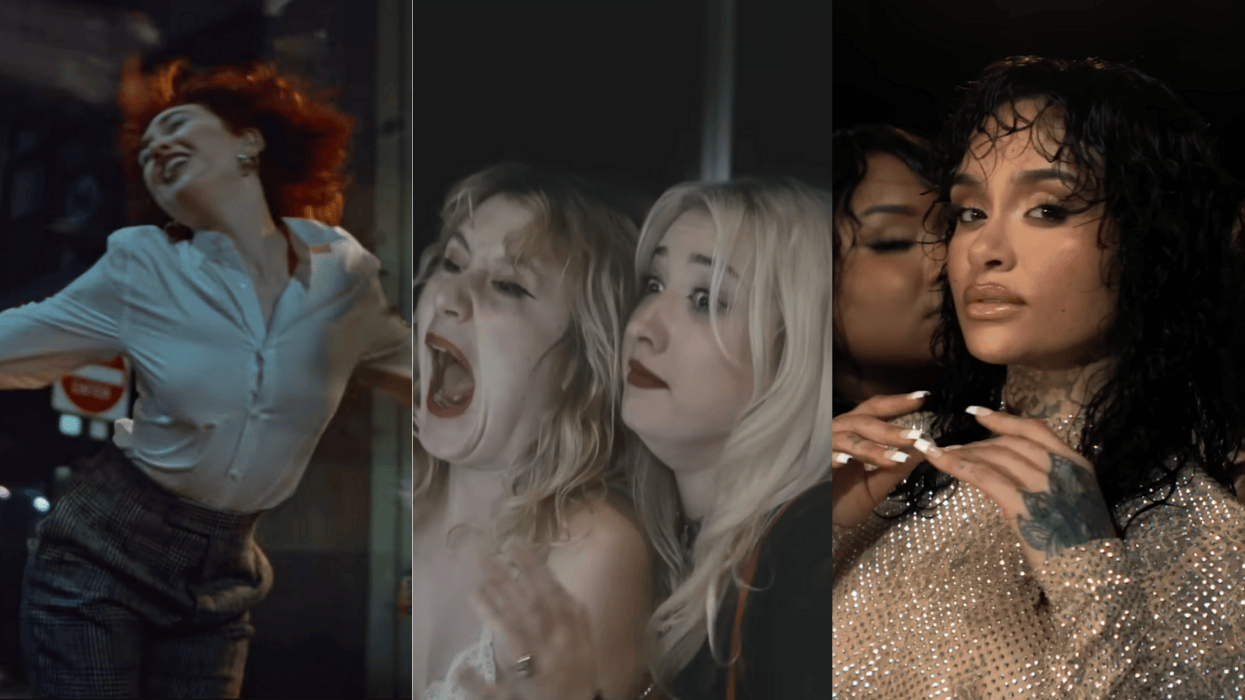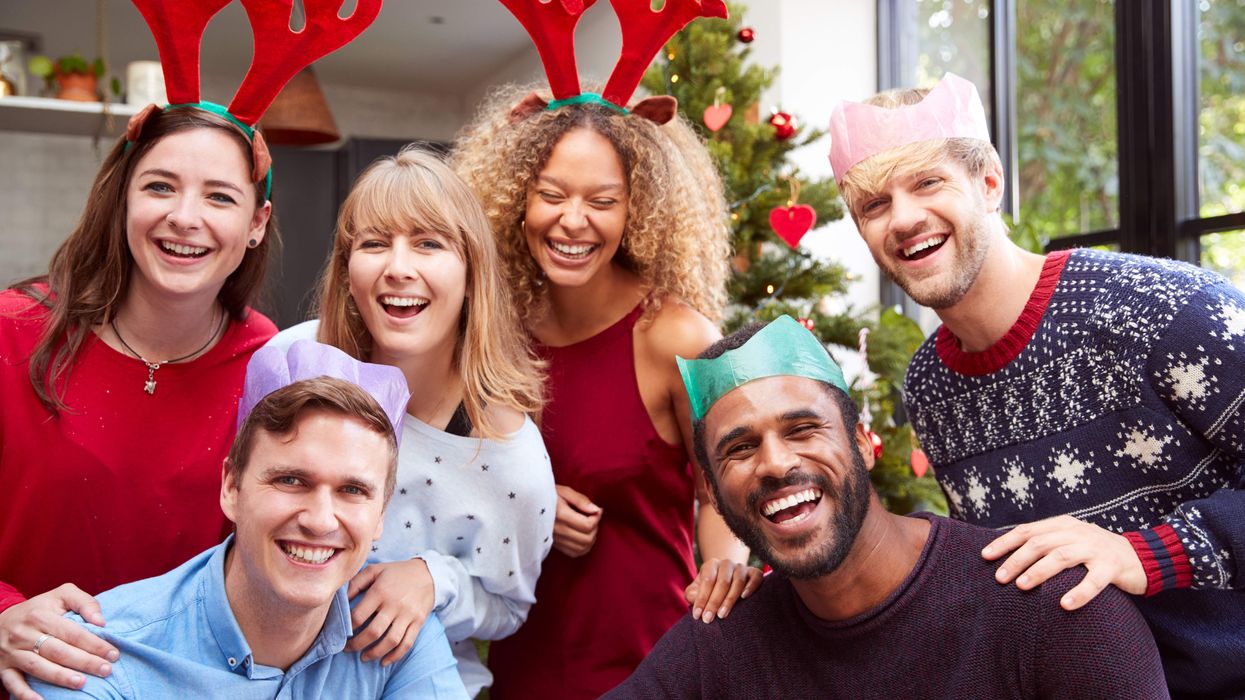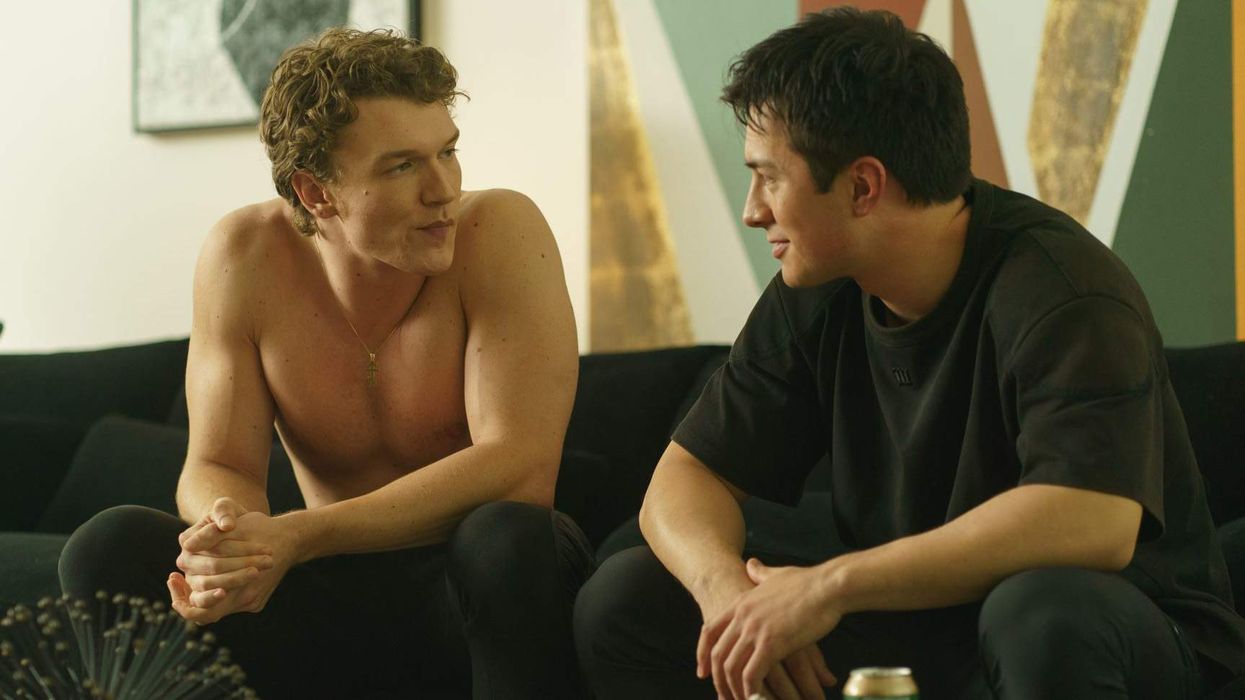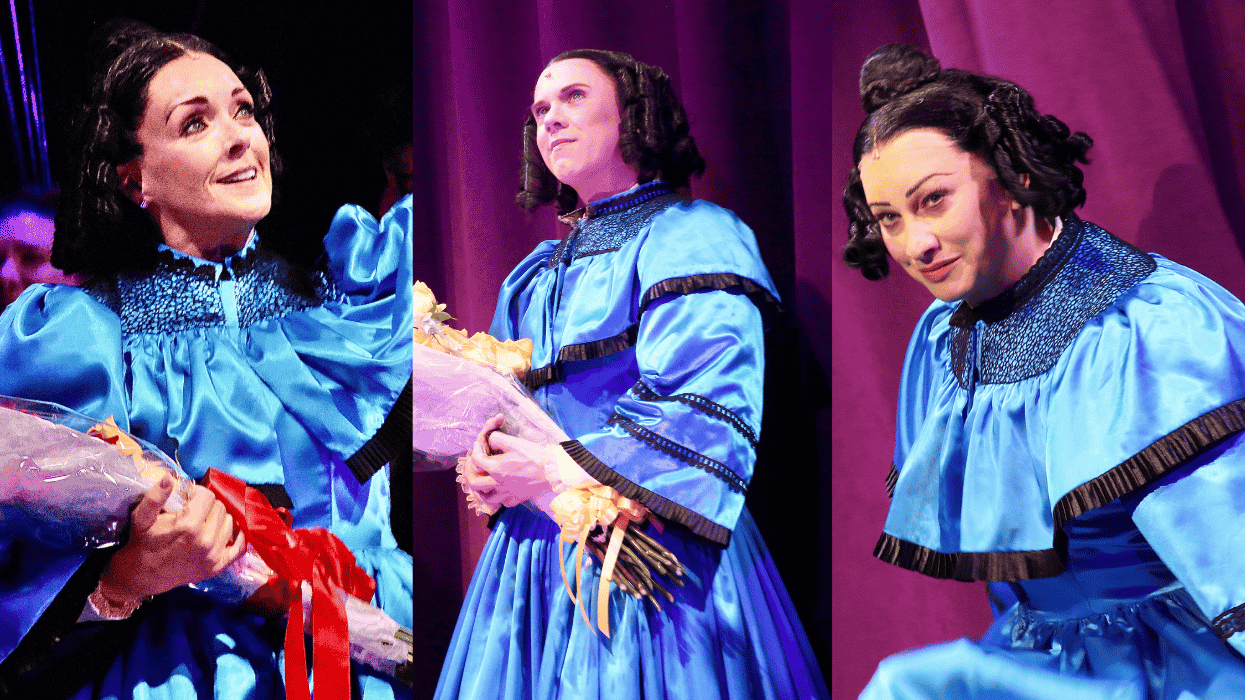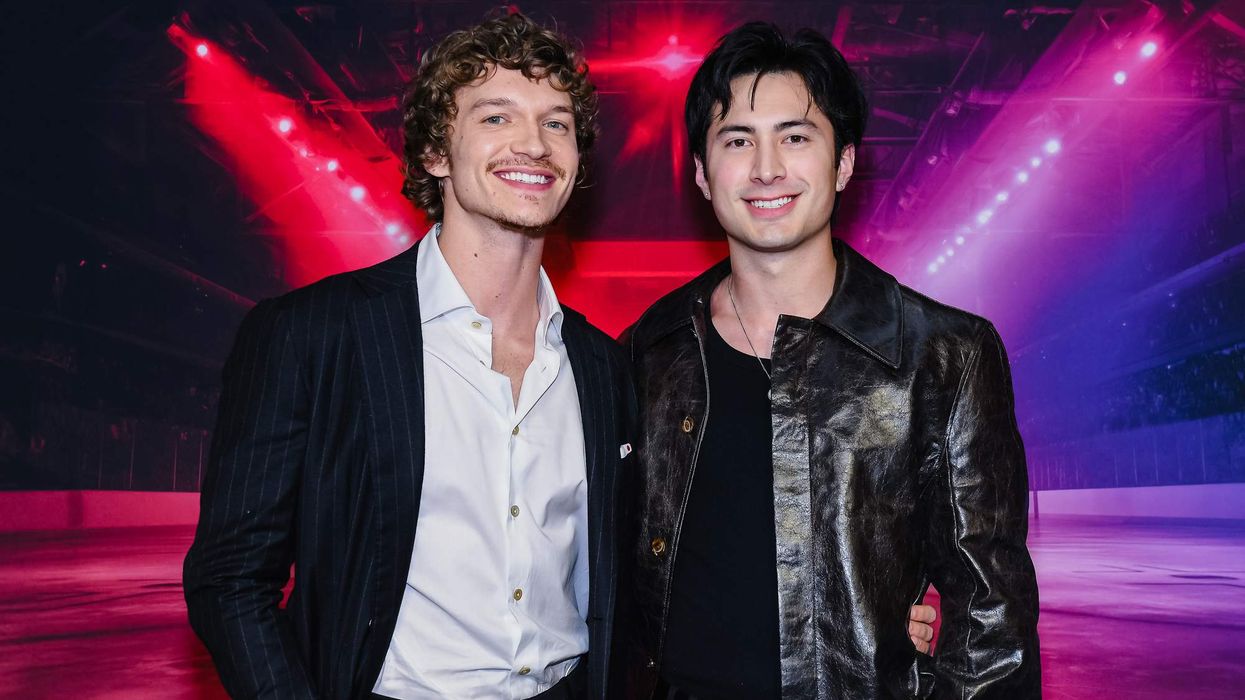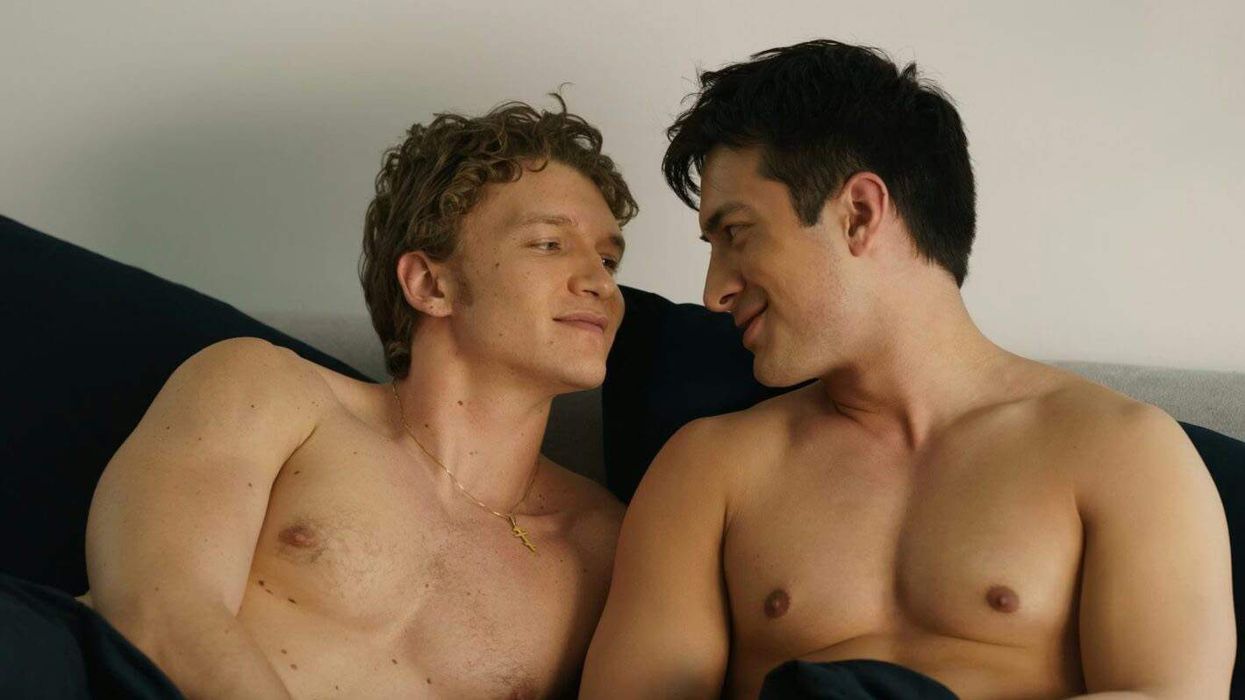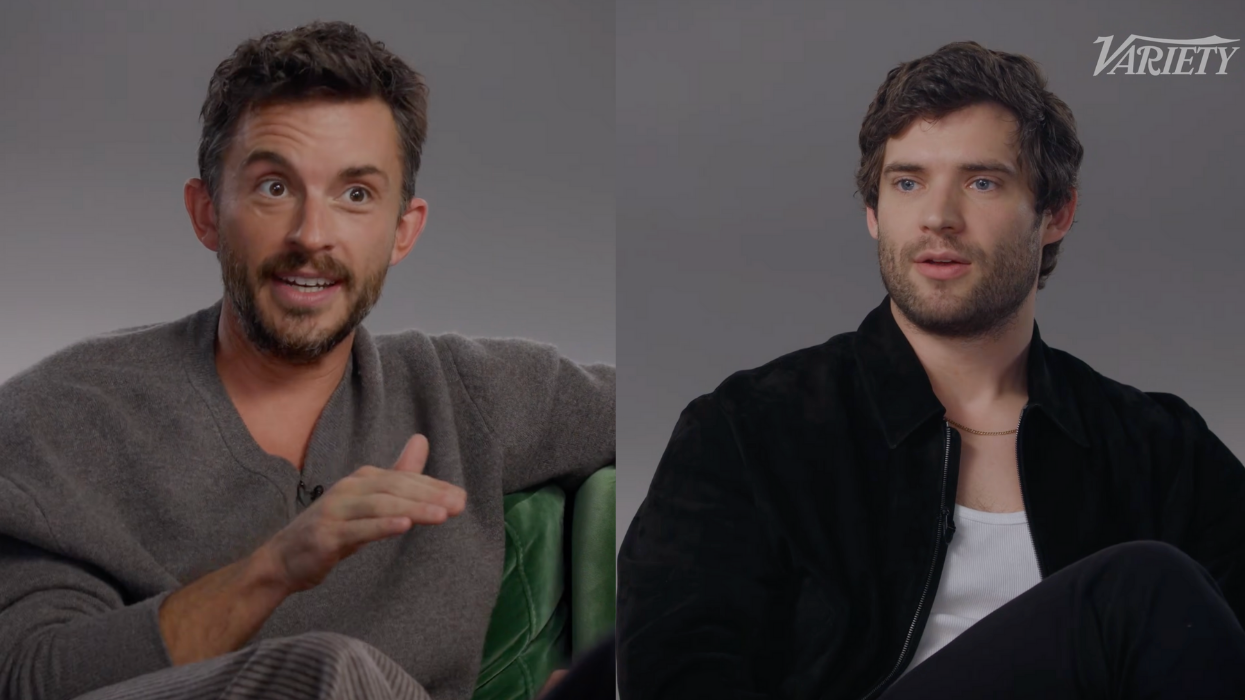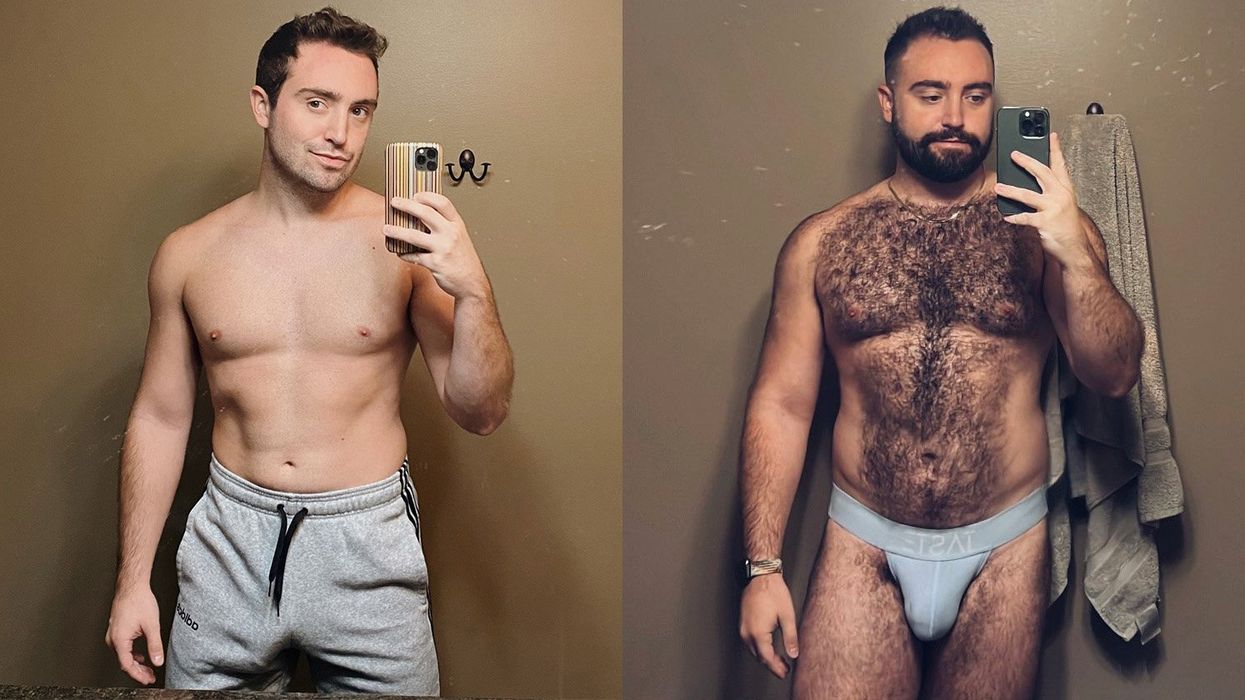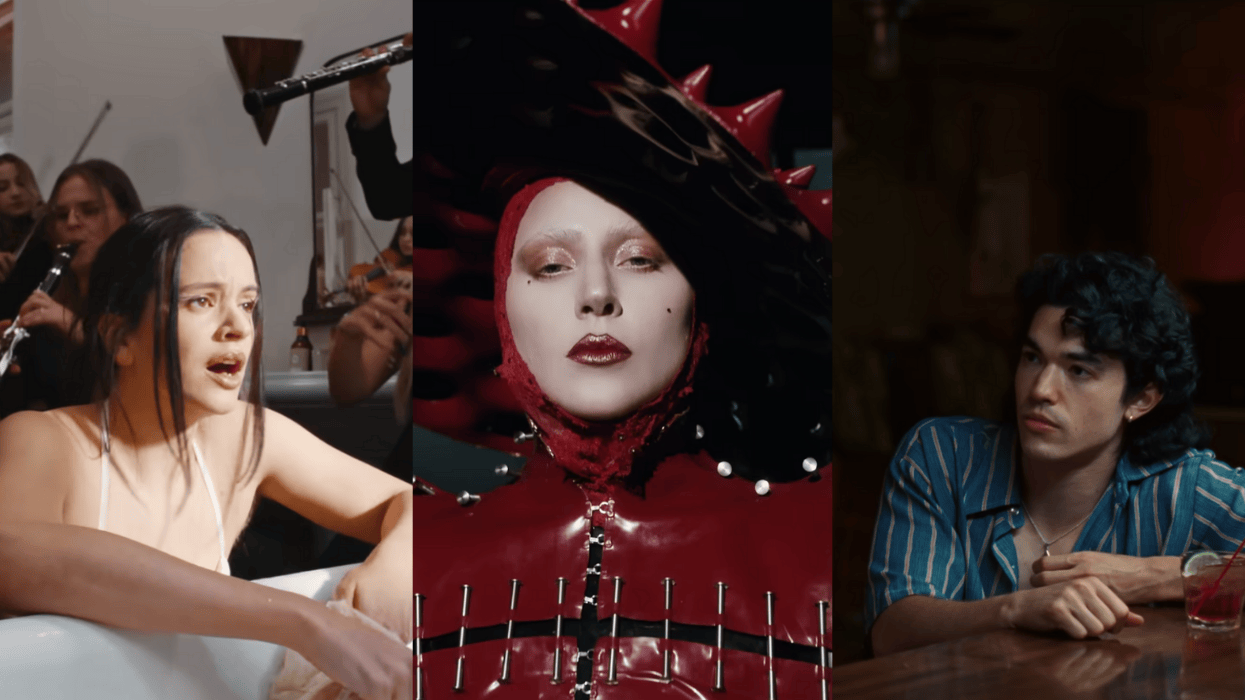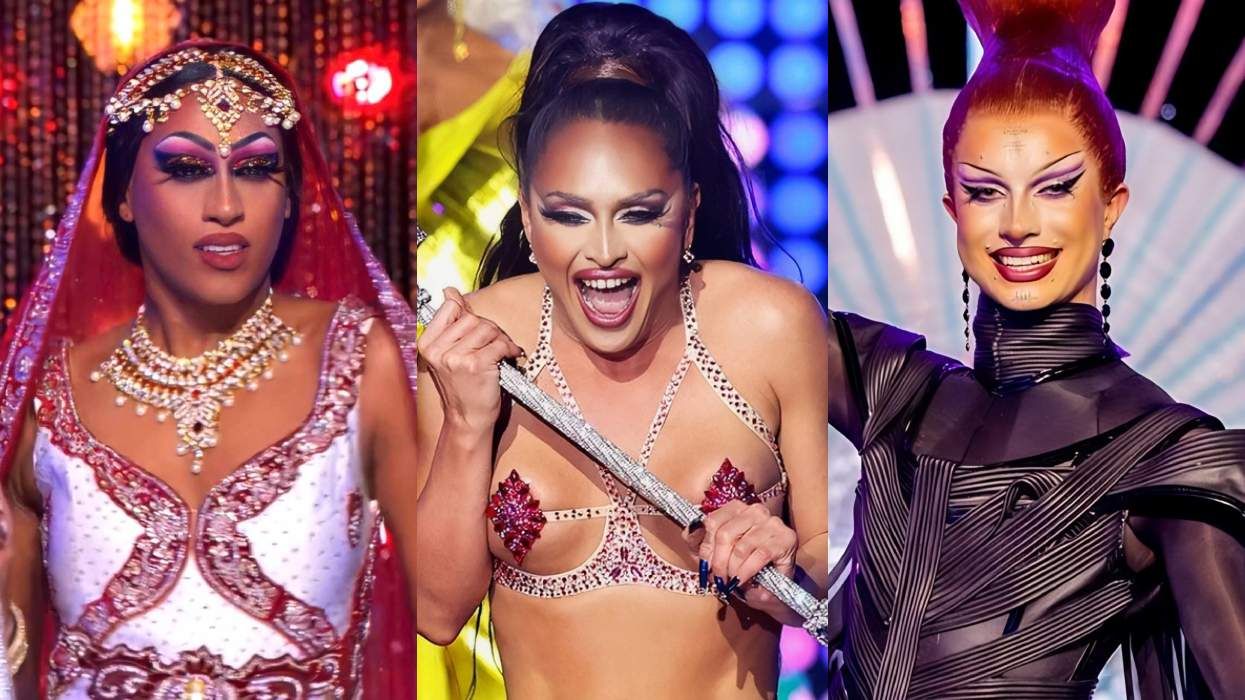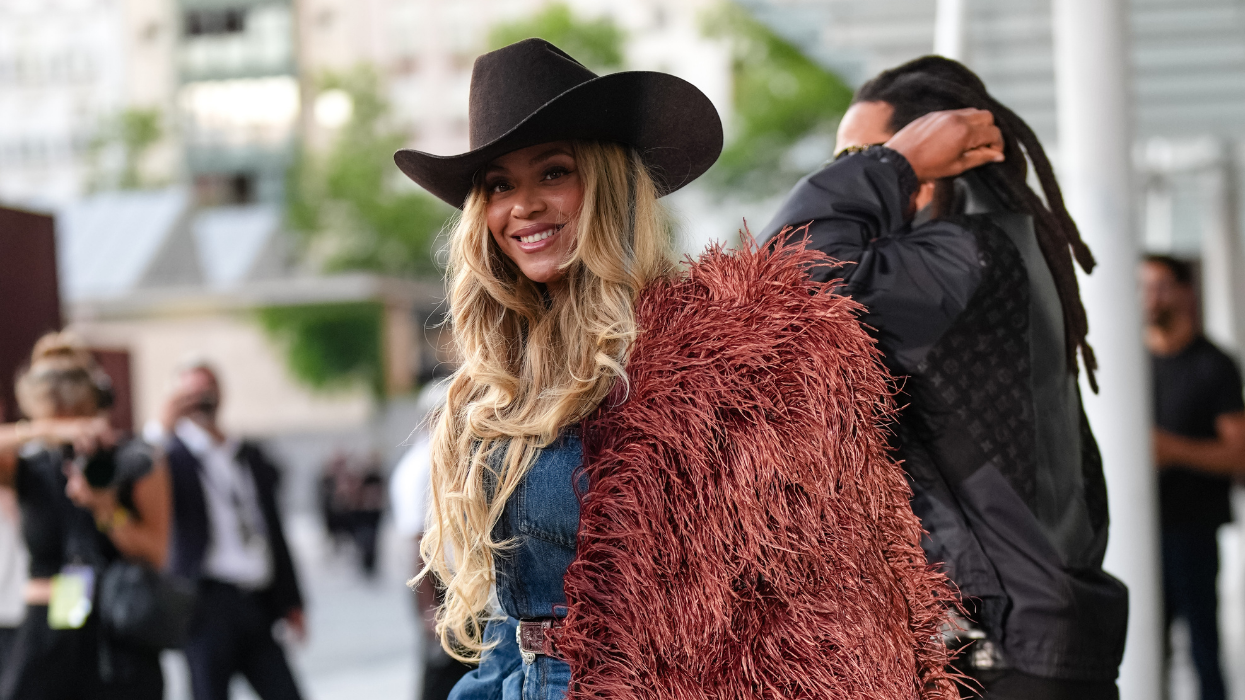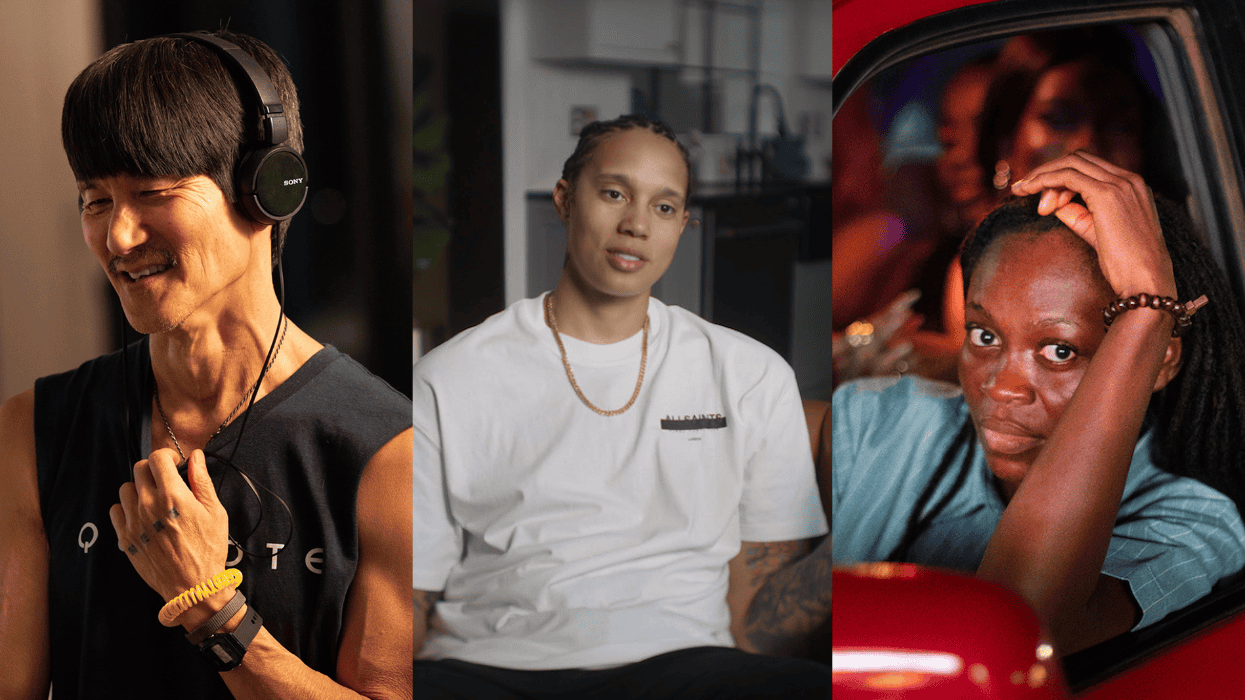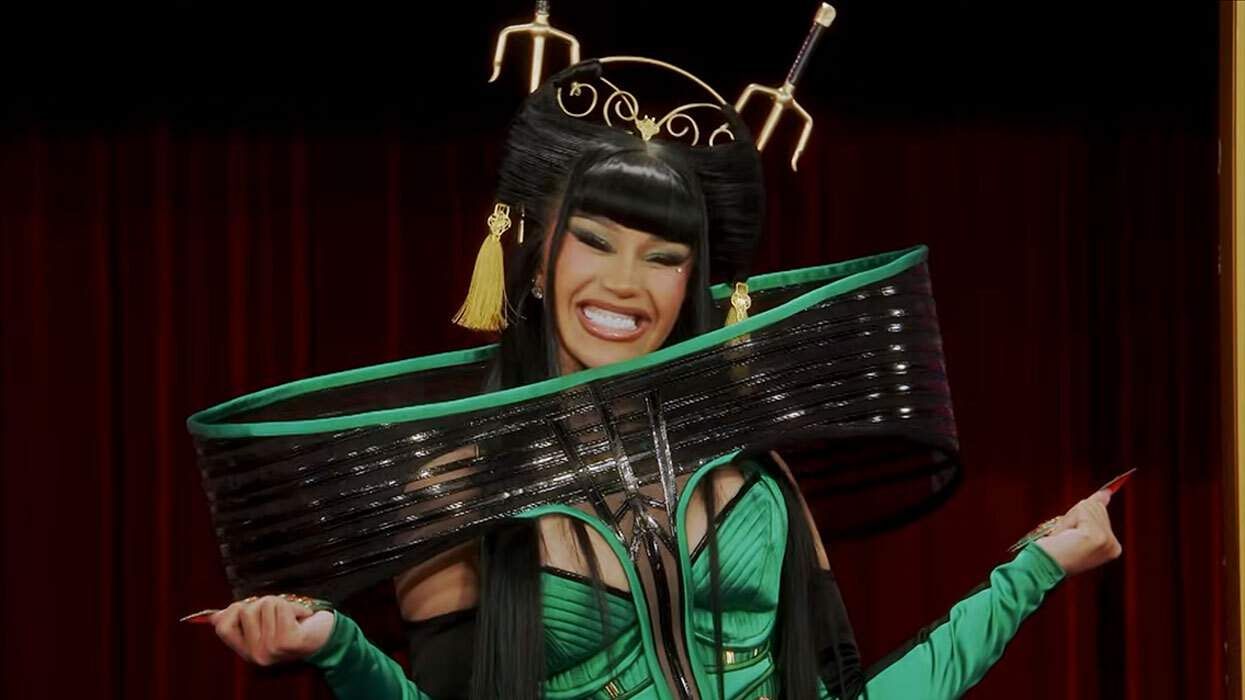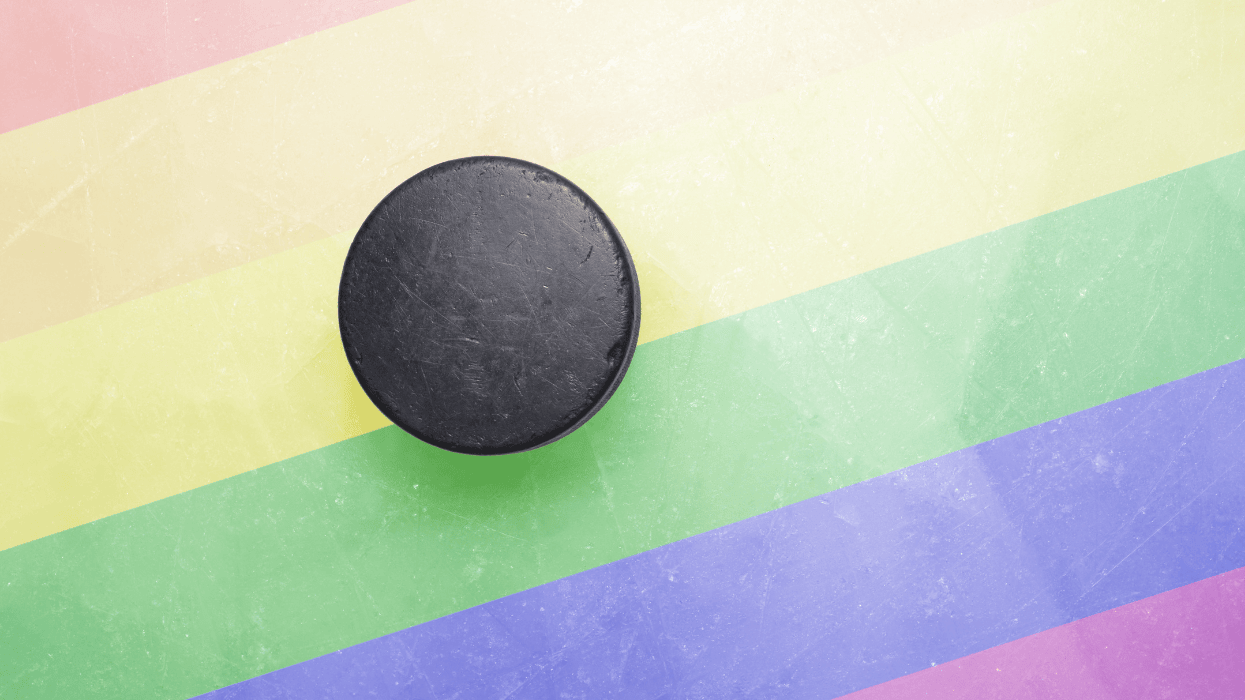At the start of Charles Nelson Reillys career, an NBC producer warned him that he wouldnt get very far, since they didnt allow queers on television. It turns out the late ascot-wearing nelly got the last laugh. Channel-surf today and, in the words of the old gay lib slogan, we are everywhere. While queer characters, story lines, and reality show contestants pop up on almost any station, some channels seem to be thinking pink more than others. Bravo, the network that launched Queer Eye for the Straight Guy and Boy Meets Boy, has cornered the market on blockbuster reality shows where queer professions take center stage, following the success of Project Runway with Top Design, Shear Genius, and Work Out. Meanwhile, BBC America seems to have its own secret homosexual agenda, continuing the tradition of Absolutely Fabulous with programs like Little Britain, Hex, and The Graham Norton Show. This fall BBC America imports the buzzworthy Doctor Who spin-off, Torchwood, a sci-fi crime drama already notorious in Britain for its frequent same-sex snogging, starring the gay Scottish-American actor John Barrowman. (The series is written and produced by Queer as Folk creator Russell T. Davies.) Its new lineup also introduces Jekylla retelling of the Jekyll and Hyde story with two lesbian private investigators on the caseand the coming-out drama Sinchronicity.
So why this explosion of queer content? How consciously do programmers at mainstream entertainment networks like Bravo and BBC America seek to court gay viewers?
Were gay without being gay, says Andrew Cohen, Bravos senior vice president of production and programming, who has overseen the networks post-Runway evolution. Cohen makes a comparison to his life: Look, Im a gay man, and being gay is just one of the things that I happen to be. And I think Bravos the same way. Our programming is reflective of the culture around us. Its meant to peel away the layers of pop culture. And who plays a massive role in beauty, fashion, food, and entertainment? My gay brothers and sisters! It would be hard for us to satisfy our mission without shining a very bright spotlight on gays and lesbians. Theres not a gay and lesbian mandate at Bravo, but gays and lesbians are very much a part of what we do.
Such an integrative attitude wasnt always exactly the case at Bravo. Early shows like Boy Meets Boy, a gay spin on The Bachelor, and Manhunt, an all-male beauty pageant, banked on gay content as a novelty factor. Queer Eye, for all its positive effects, might even be accused of veering close to queer minstrelry: gays camping it up to play to stereotypes of the fawning fey attach. But the latest crop of Bravo shows has significantly shifted away from this gimmicky model. The fact that the participants in Project Runway or Work Out are gay isnt the main point of the show, and their identities are presented simply as a matter of course.
I think thats an example of the times changing, Cohen offers. One of the amazing things about Queer Eye was that the Fab Five were bonding with straight people and elevating them. There was a process of understanding and union between gay and straight people on the show. Boy Meets Boy put men dating each other out there in the mainstream. So what do you do after breaking these huge barriers? The revolution now is in the everydayness of gays, as part of the fabric of our daily lives.
One of the things I love about Project Runway is that all of the male authority figures are gay. Tim Gunn and Michael Kors, the two men of prominence on that show, arent on TV because theyre colorful characters but because theyre talented and have something to show the world. And thats a beautiful thing. You see gay people just being who they are, excelling at their areas of expertise.
Another gay male authority figure is Cohen himself. Not only is the programmer an enthusiastic Bravo booster, hes also made himself into an on-screen personality, hosts reunion shows for The Real Housewives of Orange County and Shear Genius, posts his own chat show and daily blog on Bravos Web site, and flogs the pundit beat to discuss trends in pop culture. Colorful characters, however, certainly remain at the core of many reality shows appeal, as their drama thrives on the clash of creative egos. The pattern seems poised to continue this fall, when Bravo introduces two new reality shows with key gay characters. Flipping Out centers on a gay Los Angeles house flipper, and Welcome to the Parker is based around the staff and guests of the Parker Palm Springs hotel.
BBC America appears to follow a similar policy of entertainment integration. Though Graham Norton is flamboyantly out and proud, that fact is hardly the main draw of his celebrity talk show. Half of the Little Britain comedy team, Matt Lucas, is gay, and he and David Walliams frequently play female characters. But their shows sharp and unrelenting humor draws more from the fast-patter nonsense of Monty Python, the gross-out punkish low jinks of Viz comics, and the cross-dressing traditions of British music hall than any typical brand of drag camp.
So do the folks at BBC America see themselves at the forefront of promoting a queer sensibility on our shores? In the words of Little Britains Vicky Pollard: no but yah but no but yah but no. When interviewed, the networks spokespeople downplayed any conscious commitment to gay programming. We dont deliberately buy shows that cater to the gay market, clarifies Amy Mulcair, BBC Worldwide Americas vice president of publicity. But its certainly an added benefit for us that what we air resonates so well with the community.
Richard De Croce, BBC Americas vice president of programming, seemed similarly nonplussed by the notion. We reflect contemporary Britain, and thats the goal of the channel. Some themes of our shows may appeal to certain segments, but not necessarily by intention, he says.
Were aware of the fact that the GLAAD Awards have supported us, says Mulcair, so we know our programming has a resonance with the gay community. Unlike Bravo, BBC America doesnt originate its programming: The network picks up existing shows that have been produced primarily for the British market. The majority of its shows were created for a mainstream audience, albeit one that is perhaps more accustomed to daring content.
Footballers Wives, Little Britain, [womens prison drama] Bad Girls, Ab Fabtheyre reflective of whats going on creatively in Britain, says Mulcair. Theyre all mainstream shows.
I think its a national and cultural divide in terms of what [British] prime-time schedules look like, says De Croce; as far as network television is concerned, the U.S. has much greater restrictions thematically. Gay content and characters appear much more in the national, commercial realm there than they do here, he says. In the U.K. the shows weve mentioned have all been broadcast in prime time on weeknights.
General entertainment networks like Bravo and BBC America cast a wide net for their audience. So if theyre raising the quantity and quality of their gay content, how does that impact the niche strategy of exclusively gay channels like Here and Logo? I think its important to talk about Logos unique role, spins Lisa Sherman, Logos senior vice president and general manager. Were the only 24/7 channel by and about our LGBT community. While many channels have gay content or a gay sensibility, we really believe that they focus on a much wider audience. We want to be the subject of the story and not the object of it, and thats really been the premise.
The MTV Networks model is about super-serving really niche audiences, Sherman says, referring to Logos parent company. And they have paved the way for how a network speaks authentically to a particular audience in its voice. I think its created an enormous brand identity between the audience theyre trying to service and the channel. Were taking a page out of their playbook on how to approach the gay and lesbian audience because I think thats the best model out there.
Whats most remarkable, then, is the twofold diversity of whats being both offered to and created by the gay population. I think Logos mandate is to create programming about and for gay people. Our mandate is to create interesting, fun shows that people are going to become obsessed with, says Cohen. The vocabulary of Shermans spiel indicates Logos more overtly politicized outlook compared with the pop culturejunkie vibe of Bravo. Its as if the internal debates of gay activisms more radical daysthe choice between assimilation and separatism, increasing our visibility in the world or creating a world of our ownhave transmogrified from political goals to corporate strategies. And for gay viewers, having competing notions of how were best served certainly isnt a bad thing. With the value of the gay market well established, its not only advertising dollars at stake anymore: Its also a question of how we see ourselves and wish to be seen by others.
Search
Latest Stories
Sign me up!
See what's new and hot in queer entertainment, in your inbox three times a week.
@2025 PUBLISHING INC
ALL RIGHTS RESERVED
ALL RIGHTS RESERVED
By continuing to use our site, you agree to our Privacy Policy and Terms of Use.
The Latest
More For You
Most Popular
Load More
@2025 PUBLISHING INC
ALL RIGHTS RESERVED
ALL RIGHTS RESERVED


